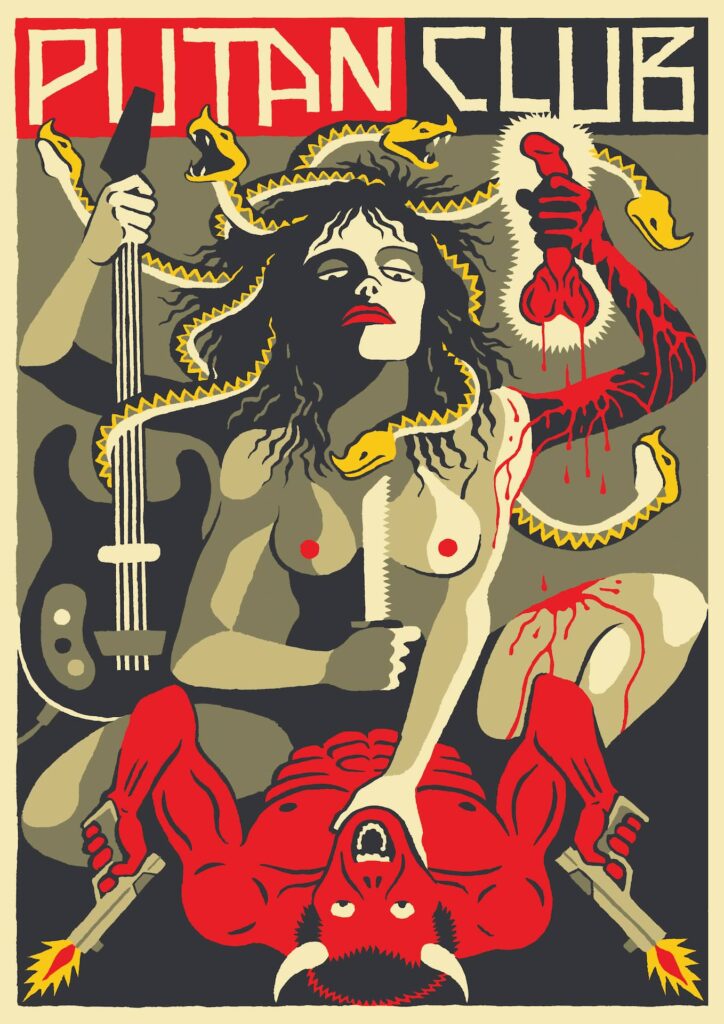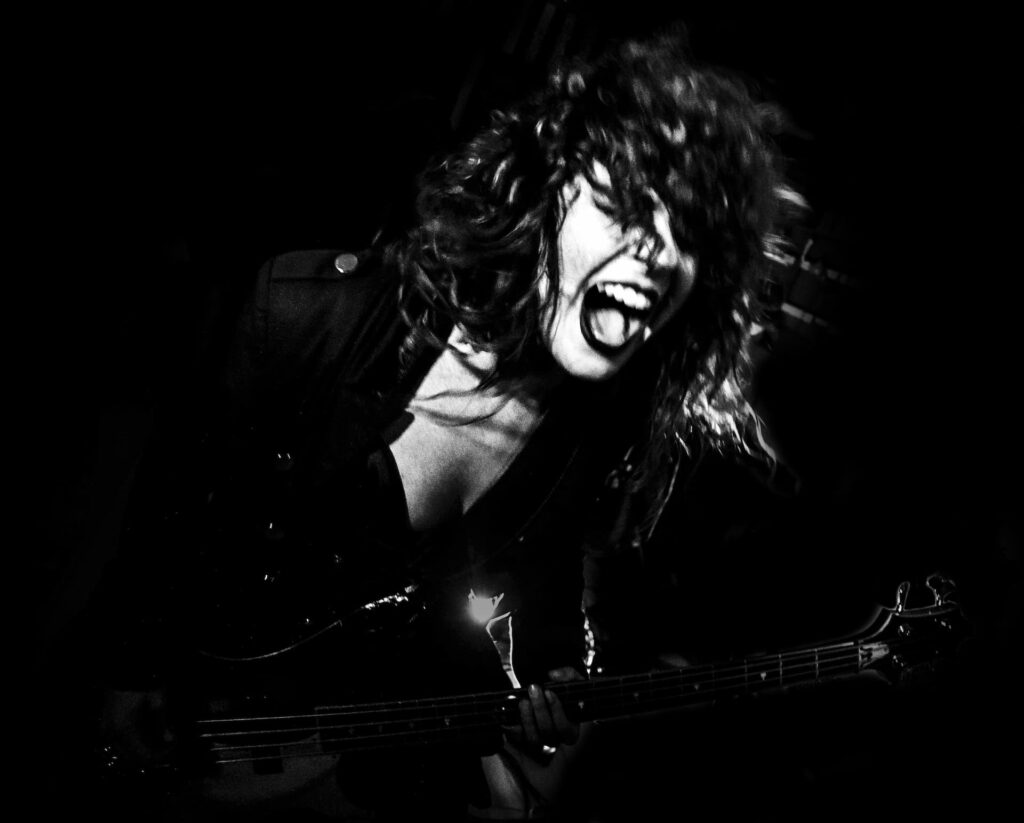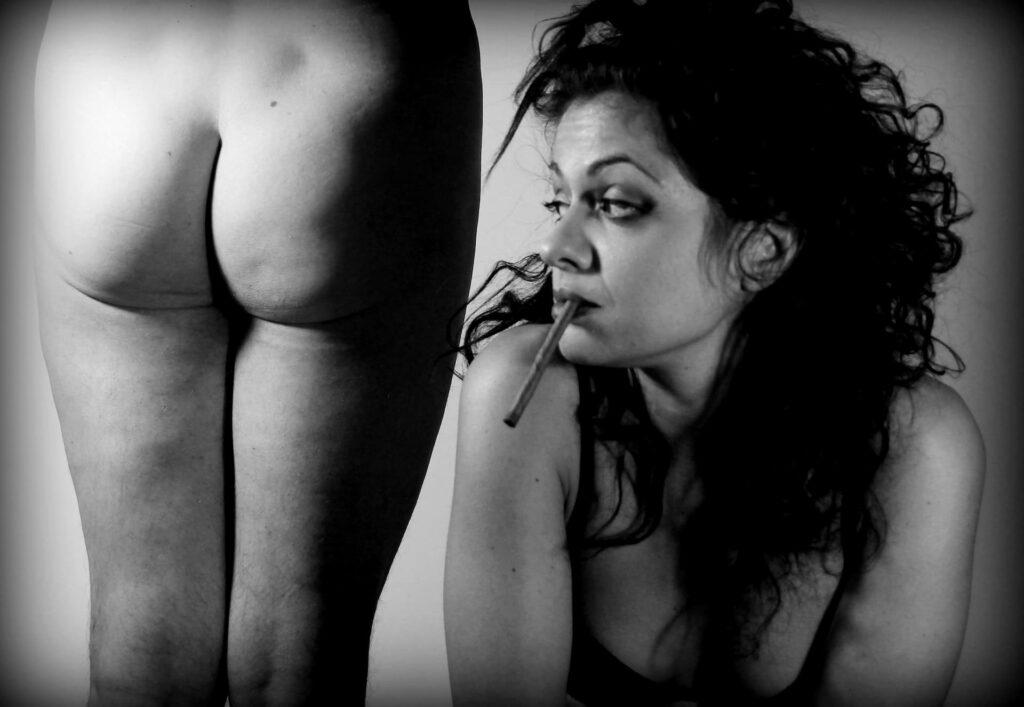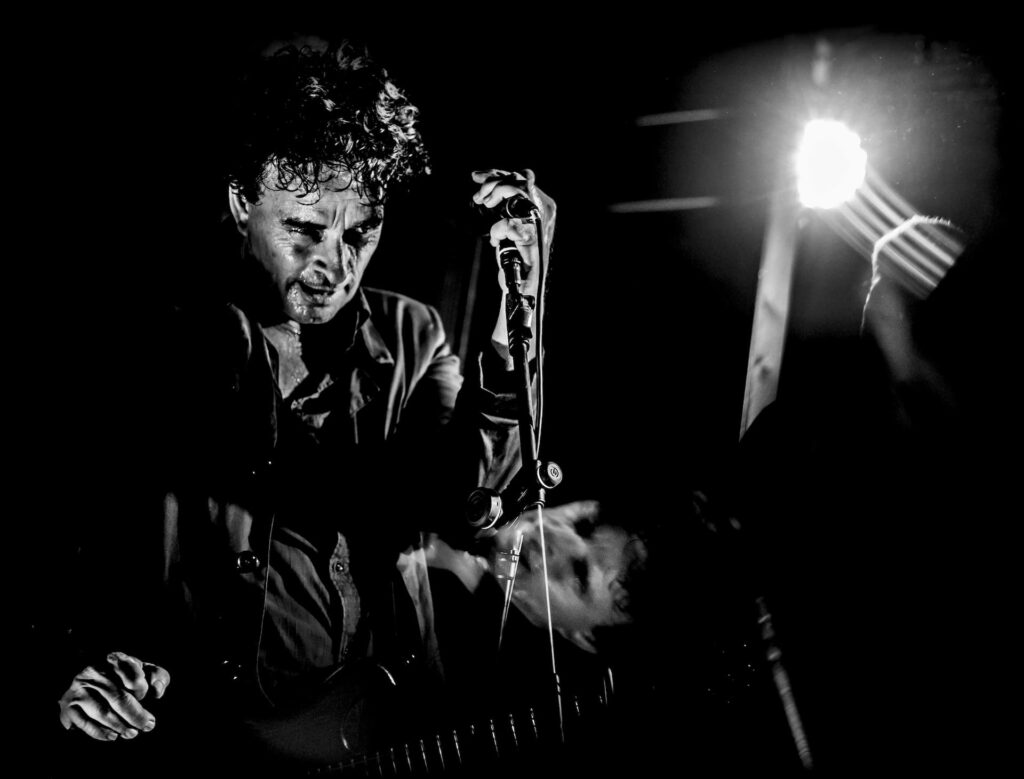Curated by Invisible°Show
[Why did you choose the name "Putan Club" and what does it mean to you today?]
It was originally a temporary name, born during a night drive near Namur, Belgium, after a concert. We saw a sign that said "ButanGas" and jokingly came up with "Putan Club." It was meant to last just six months, deliberately provocative, a bit punk. Now it has taken on a more serious meaning, recalling the resistance of Vietnamese prostitutes during the war. It's challenging to carry, often mistaken for "Putin Club" in Russia, which initially annoyed us but now amuses us.

[David Lynch once said in an interview, "If I want to send a message, I'll go to the post office." Does your project carry a message?]
We weren't born to explicitly send messages, but inevitably, the way we live and work becomes political. In our lyrics, we are concise and avoid easy rhetoric. Traveling extensively, we encounter realities that deeply affect us, like the massacres of Uyghurs or Europe's tense situation. However, our strongest message is in how we structure our lives and work: autonomous, independent, free from agencies, promotions, and obligations of the music market. We manage to make a living from it, paying rent and bills, which is our real success. It's not self-destruction; it's continuous discovery and personal rebirth.

[You’ve played thousands of concerts yet released very few albums: why this choice?]
The true dimension of Putan Club is live performance, not records. No recording can truly capture the madness, intensity, and energy of a live show. Few albums, often live recordings, signal our constant evolution and a clear rejection of the stagnant music market that repeatedly recycles the same things. Each concert is unique, unrepeatable, and this uniqueness interests us more than any record. We recently released a new album recorded live, symbolically marking the end of a phase and hinting at new musical directions.

[How do you experience the constant traveling and performing in remote, lesser-known locations?]
Constant traveling is essential and revitalizing for us, though it might seem like a form of escape from routine and a stable life. It is not self-destructive; rather, it's ongoing personal growth, meeting new people, gaining new experiences, and continuously learning. Recording and documenting these travels have become fundamental: we collect hundreds of hours of material, footage, and audio recordings of local musical rituals, leaving them freely accessible to cultural archives or ministries of the countries we visit. Performing in remote locations allows us to discover and engage with often invisible communities, giving them a voice and
creating authentic, meaningful relationships. At the same time, we cherish returning to familiar places, such as our base in France or in Salento, Puglia. This return is just as important as departure itself.
[What are your influences? Do you identify yourselves as Italian or French artists in any way?]
We don't have a specific musical affiliation. Ethnomusicology and our constant travels lead us to blend everything: jazz, death metal, punk hardcore, contemporary classical. We impose no genre limitations. We truly claim to have no musical "church." What genuinely moves us is authenticity, the "duende" of the gypsies. We seek that genuine dimension, without worrying about its origin.

[In your concerts, you reject traditional stages: what meaning does this choice hold for you?]
For us, the stage represents an unnecessary distance, an outdated sanctity we prefer to avoid. We choose to immerse ourselves directly into the audience to create a true collective experience, a physical ritual. This direct contact eliminates any barrier between artist and audience. For us, the concert is this: a dimension of complete authenticity and wildness.
VIA G.B. MORONI 177
24127 BERGAMO
P.IVA 04712920166